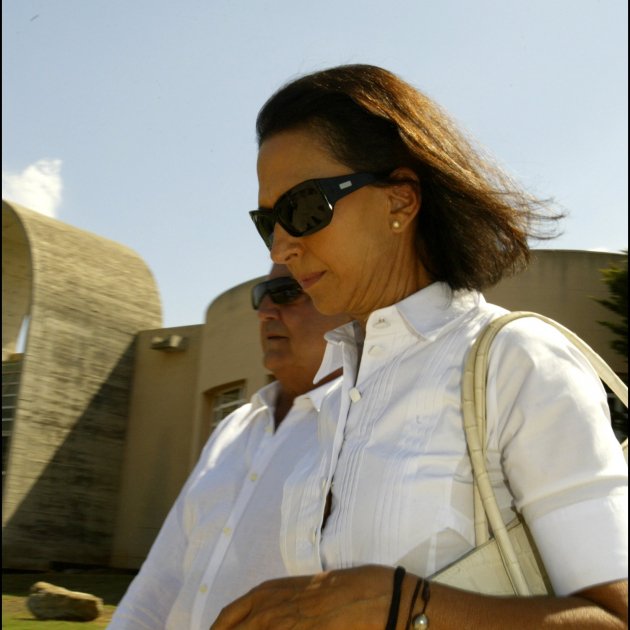Before Corinna zu Sayn-Wittgenstein, the person occupying king Juan Carlos I's thoughts was a woman from Palma (Mallorca), Marta Gayá. A "special" friend of the monarch, some say, she was allegedly something more during the 80s into the 90s. In fact, the newspaper El Español claims that the former king once asked the head of the royal household, Sabino Fernández Campo, "can't I do what thousands of Spaniards do?", relating to a possible divorce with queen Sofia to go with Marta.
GTRES
The designer is one of the women who have never failed Juan Carlos and, after they had whatever they had, their friendship has continued through the years. It's not a surprise, given that the king has gone out of his way for her, whether Sofia was in the way or not. Evidence of that came from Pilar Eyre in Lecturas this week, describing something that happened in 1991. At a dinner in honour of Aga Khan at Palma's Club Nàutic hosted by the royal couple, Sofia "left very annoyed because Juan Carlos abandoned her to sit with Marta Gayá, his 'girlfriend', who was with the Vilallongas". The Vilallongas and Gayá arrived late, something not at all looked well upon when the king and queen are around. Nonetheless, the then-king abandoned the head table to keep them company.
Efe
A year later, during the name day of Juan Carlos's father, Juan de Bourbon, Sofia attended "alone and in tears. Juan Carlos was in Switzerland with Marta Gayá, ill with depression". Now, with everything swirling around the king as the royal family holiday on Mallorca, the person who has decided to make themselves scarce and leave Palma is Gayá. Although from Mallorca originally, and having spent more than half her life there, she's preferred to spend more time in Switzerland for a while. Now, according to Vanitatis, she's put her 300m2 apartment on the market. It's on Palma's passeig marítim, a highly sought-after location, and boasts a sea view. The kind of property you won't get for under 600,000€. Gayá, a discrete woman and faithful friend, was part of what was known as Juan Carlos's "Mallorcan court". A court slowly dissipating leaving a king in the middle facing ever more questions.
